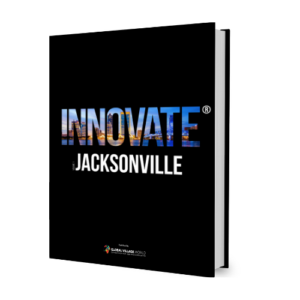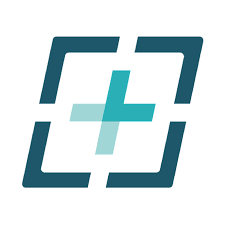Craig Mandeville, CEO of Jacksonville, Florida-based healthcare technology provider Forcura founded his company for personal reasons, hoping to lessen the time his wife spent driving back and forth to her employer’s home healthcare agency. In her role at the time, Heather Mandeville helped patients who were leaving a hospital transition into a home health setting. The paper-based documentation that process required meant she spent much of her time coordinating with doctors and hospital administrators, collecting signatures, and driving that paperwork back and forth to her company’s office. Using technology, Mandeville has helped Heather’s agency as well as the more than 12,000 home health agencies across the U.S. streamline that undertaking. Along the way, Forcura has changed the lives of millions of healthcare consumers and the people who care for them.

Forcura launched in 2012 with a single web-based document management application that streamlined the referral management and intake process for home health agencies nationwide. Designed specifically for the complexity of home health and hospice agencies, the application helped caregivers and back-office workers by eliminating the need for mailing and faxing paperwork and making it all electronic. The sheer amount of manual home health and hospice intake paperwork and the massive opportunity to streamline the process by taking it digital was the main reason Forcura’s first offering was so well-received, says Mandeville. The company’s earliest customers saw at least a 60 percent reduction on time spent on tasks such as sending, receiving, and tracking documents, he says, so caregivers in the field could finally spend more time actually interacting with patients.
“When you think about home healthcare the documentation process is very cumbersome. They have a lot of required assessments that drive clinical decisions and financial reimbursement,” explains Seema Mathur, director of strategy at healthcare research firm Sage Growth Partners. “A lot of that is done on paper. Without automation, communication and collaboration can be disjointed.”
Since introducing its first application the company has added several additional cloud-based tools for the healthcare industry, Physician Orders Tracking, and a Mobile Care Coordination app that allows remote care clinicians to capture documents, images, and videos digitally, securely communicate, and capture clinical images and measurements of wounds. In 2018, Forcura announced Forcura Connect, a framework for standardizing interoperability and integration between post-acute providers and providers in other parts of the healthcare continuum. In 2019 the company is committed to pushing the industry from documents to actionable data and is planning the release of several new features that will make that transition for enterprise home health and hospice agencies as easy as the push of a button.

These applications all came into existence at a time when the Federal Government had its sights on similar economies. Care providers in 2014 were required to use electronic health records (EHRs) in a meaningful way to improve patient care. This mandate came down after doctors, hospitals, and other healthcare practices received $28 billion in federal stimulus money. However, this mandate wasn’t the panacea government experts had hoped it would be since healthcare providers were still drowning in data and most of it was still on paper. This made their task difficult if not impossible until companies such as Forcura came along.
Connecting People, Processes, and Profits
While there’s something to be said about being in the right place at the right time, Forcura’s success is more complicated—and impressive— than just that. In the five years since Forcura’s launch, the company has grown significantly, posting triple-digit revenue growth. It is ranked 718 on the Inc. 5000 after more than doubling company revenue in 2017 alone. And its upward trajectory is on solid footing given the fact that the organization recently landed five industry partnerships—ones that put the company on course to become the standard communication platform for the post-acute healthcare industry.
Part of that success comes from its innovation and product launches—after all, Forcura’s applications are filling needs and helping to improve patient care—but Mandeville’s success can also be tied directly back to the way he treats his employees. New hires are on-boarded knowing they are joining a team that has a “work hard, play hard” attitude. Every employee is schooled on the company’s core values – being passionate, bold, innovative, transparent, and fun—and employees are encouraged to seek a true work/life balance. “We hire the best and expect a lot out of our team and in turn, we are highly focused on being the best place to work in Jacksonville and beyond. We know that as a high-growth technology company, our culture is what’s going to allow us to continue to move fast and stand apart from the competition,” explains Mandeville.
Forcura has deep ties to the community, too. It recently moved to a new office on the south side of Jacksonville, which is stocked with drinks from local vendors such as Brass Tacks Coffee, Gnarbucha Kombucha, and other local craft breweries. Its walls are adorned with photography of First Coast landmarks. Outside the office, Annie Erstling, Chief Strategy Officer, leads the company’s efforts to sponsor local non-profit organizations such as PedsCare, Habitat for Humanity, St. John’s Santas for Seniors, the St. Vincent’s Shircliff Society, and Mission House. Other Florida-focused work includes a scholarship the company created for the University of North Florida as well as participation in the school’s mentorship program, two commitments that are important since college recruitment is a source of talent for the company. “I’ve been working here for almost five years and one of the reasons I love it so much is the fact that I feel like my work is truly a second home,” says Charlie Flynn, Partnership Manager, who joined the company in April 2014. “It’s like everyone has a seat at the table. We’re all welcome and encouraged to provide feedback, make suggestions, and really own a piece of this business.”
And they do—literally. All employees are granted stock options from their first day at the job along with a 401K match. Other employee perks include group fitness activities, healthcare, and paid time off for new parents. It’s no wonder then that under Mandeville’s guidance, Forcura was recognized as a Best Place to Work by Jacksonville Business Journal and made it onto similar lists sponsored by Florida Trend, Inc. Magazine, and Modern Healthcare.
Going forward, Mandeville and his employees have their eyes set on achieving the company’s vision of being the standard communication platform for post-acute care providers. Providing true interoperability and data portability for all patients no matter which healthcare provider they turn to or where in the country they reside or travel to is the key to this success.
“With Forcura we have developed a standard information platform that will help home health and hospice agencies take patient and device data and combine it without having to do any heavy lifting,” says Mandeville. “When you standardize interoperability and integration between home health and hospice organizations, physicians, EHRs, and other supporting technology vendors, and give those players access to real actionable data, you elevate the standard of care and save time and improve lives.”















